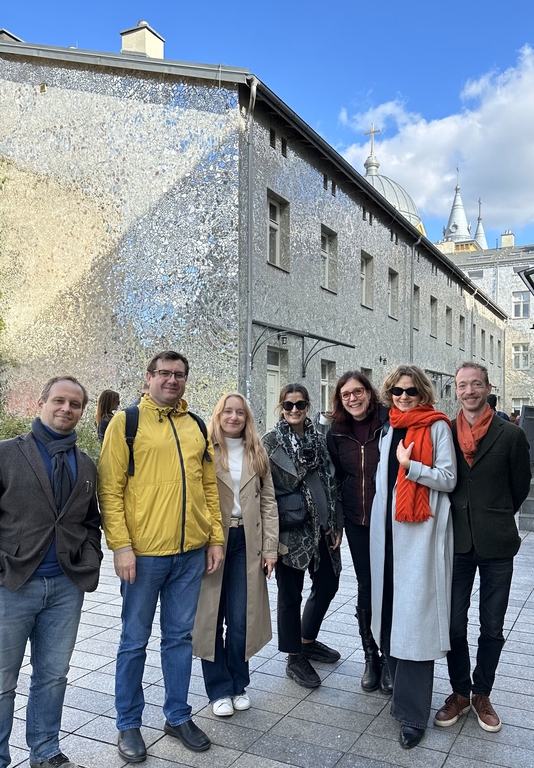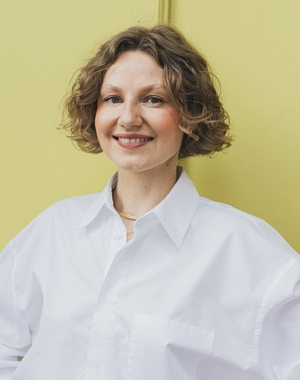The work on the project has been carried out by an international consortium including research teams from Poland, the Czech Republic, Germany, Finland and the UK. The project is financed by the European initiative CHANSE (Collaboration of Humanities and Social Sciences in Europe) and will run until the end of 2025.
SMARTUP examines how the digitalisation of the home space affects everyday life, social relations, gender roles and power relations at home. Instead of focusing solely on technology, the project focuses on people and culture – examining how intelligent systems are transforming the way we organise work, care, privacy and everyday interactions.
Home – once seen as a space clearly separated from the outside world, with clear segmentations between public and private, male and female, caring and earning – is now becoming a fluid space in which new technologies are redefining traditional boundaries. This transformation has become particularly evident during the COVID-19 pandemic, when homes had to simultaneously function as offices, schools, places of care and rest.
The SMARTUP project combines interdisciplinary approaches from the social sciences, humanities, gender studies, design studies and science and technology studies (STS). Thanks to this diversity, researchers create a unique perspective that allows us to understand how digitalization is taking place in different European countries and what social and cultural consequences it brings.
The aim of the project is not only to diagnose the challenges, but also to indicate how smart home technologies can be designed and implemented in a fair, accessible and sustainable way – with all users of the homes of the future in mind.
 The SMARTUP project team
The SMARTUP project team
Smart homes – new technologies, old inequalities?
SMARTUP study: Digital home care may exacerbate unequal division of household chores by gender.
Germany, Poland, the Czech Republic – [2022-2025] Smart homes were supposed to revolutionise everyday life by reducing the amount of housework and making it more efficient. Meanwhile, a new study, conducted among 30 households using smart technologies in Germany, Poland and the Czech Republic as part of one of the SMARTUP (CHANSE) project teams, reveals that new household responsibilities resulting from having smart technologies – the so-called digital housekeeping – instead of equalising the division of labour, may perpetuate and deepen gender inequalities.
Digital home care – who benefits from it?
Modern home technologies require not only basic maintenance, but also:
-
making decisions and purchasing smart home technologies,
-
installing and integrating devices into daily routines,
-
managing data, updating and optimising systems and repairs.
The SMARTUP study shows that these responsibilities are mainly taken on by men (in heterosexual couples), while women still do most of the traditional housework. Paradoxically, instead of challenging traditional divisions of roles in households, smart technologies may perpetuate them – men spend time on digital housekeeping and have less time for other duties, such as childcare. In smart homes, women still do most of the traditional housework.
Smart home – convenience or another burden?
While smart devices were supposed to make life easier, the SMARTUP study reveals several key issues:
-
Maintaining traditional roles – men as "tech experts" are taking over the management of digital systems, but their greater involvement in so-called "digital homework" does not translate into a more equal division of other household responsibilities.
-
Digital responsibilities instead of care – men spend time configuring and optimising systems, which means they do not engage in childcare or other household chores.
-
Increasing expectations of the household – automation does not reduce the amount of work but increases the standards of running a household.
-
Technology management as a hobby versus household chores – men often treat technology management as a hobby, and its necessity justifies their lack of participation in traditional household chores.
-
New power inequalities in the family – intelligent systems make it possible to control household members, creating new hierarchies between partners and within the family.
SMARTUP conclusions and recommendations
SMARTUP project researchers underline that technological innovations should go hand in hand with equal social changes. Key recommendations include:
-
Designing technologies with gender equality in mind – smart systems should be intuitive and accessible to all household members.
-
Raising awareness of the needs of women and men in homes – companies and institutions should include user research in technological and social policies.
-
Recognition of digital homework in household studies and economic analyses – to properly estimate its impact.
Smart homes are not neutral – instead of reducing inequalities, they can deepen them. When men engage in digital housekeeping, they often do so at the expense of other responsibilities, which perpetuates the traditional division of roles. Automation in itself is not the solution – we need to think about how to fairly divide both digital and traditional homework
– says Dr Sandra Frydrysiak, researcher involved in the SMARTUP project.
Expert involved in the SMARTUP project
 Dr Sandra Frydrysiak
Dr Sandra Frydrysiak
The author of the article – Dr Sandra Frydrysiak is a PhD degree holder in Cultural Studies, MA in Sociology, International Relations and International Gender Studies. She is affiliated with SWPS University in Warsaw and the University of Lodz. She is currently conducting research within the SMARTUP (CHANSE) project. She focuses on the intersection of gender, technology and power in digital environments, exploring how smart technologies transform care, work and agency in the home space. Her latest article, "Is Digital Housekeeping Care? – Visions, Legitimations, and Negotiations of Care Work in the Smart Home", co-authored with J. Grünhlich, N. Andrš Fárová and P. Kodenko Kubala, will be published in Berliner Journal für Soziologie in 2025.
Source: Dr Sandra Frydrysiak, Faculty of Philology, University of Lodz
sandra.frydrysiak@filologia.uni.lodz.pl
LinkedIn
Edit: Press Office, University of Lodz
Photo: Sara Wiśniewska
